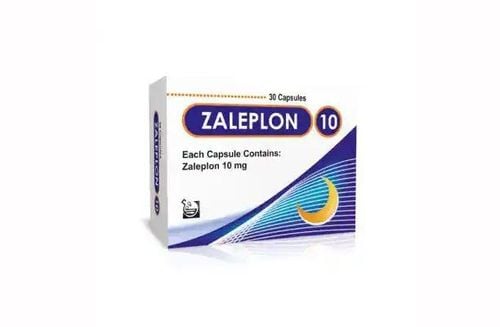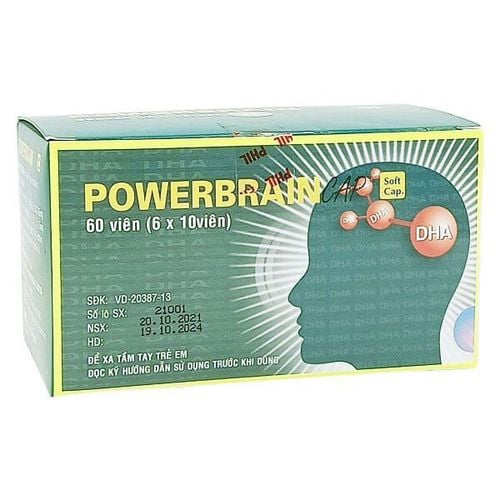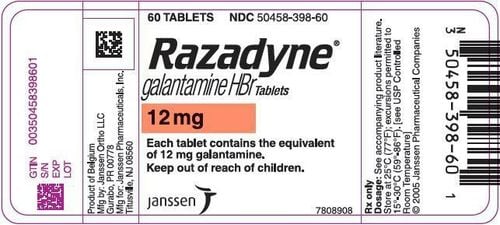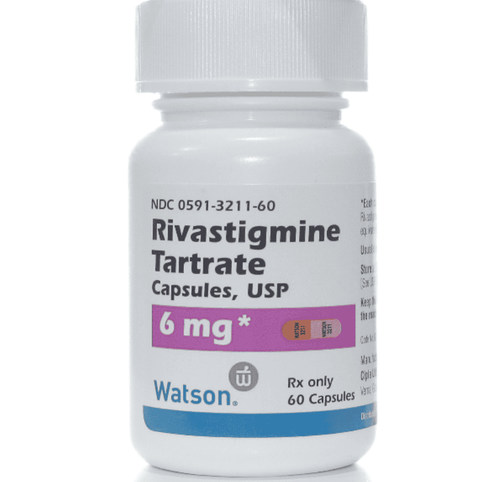This is an automatically translated article.
Cognitive disorders often begin insidiously, but their progression can significantly interfere with a person's quality of life. Therefore, cognitive disorders are often detected late. Some mild cases of cognitive dysfunction can be confused with other abnormalities. It is important to understand the different cognitive disorders, their symptoms, and the appropriate treatment options.
1. What are the types of cognitive disorders?
Cognitive disorders are part of the classification of neurocognitive disorders in the fifth edition of the Diagnostic and Statistical Manual of Mental Disorders (DSM-V). Cognitive disorder is defined as any disorder that significantly impairs an individual's cognitive function to the point of being unable to function normally in society if left untreated. Some common cognitive disorders include:
Dementia. Developmental disorder. Movement skill disorder. Amnesia . Substance-induced cognitive impairment. Alzheimer's disease, one of the most common cognitive disorders, affects about 5.1 million Americans.
2. What causes cognitive disorders?
Like most mental disorders, cognitive dysfunction is caused by many factors. Some are due to hormonal imbalances in the womb, others are due to genetic predisposition, and others are due to environmental factors. Common extrinsic environmental causes include nutrient deficiencies and interactions during vulnerable stages of cognitive development, especially in the neonatal period.
Other common causes of cognitive dysfunction include substance abuse and trauma. When an area of the brain that regulates cognitive function is damaged, either from drug abuse, alcohol use, or physical trauma, those neurophysiological changes can lead to real cognitive dysfunction. the.

Có rất nhiều nguyên nhân khác nhau có thể gây nên chứng rối loạn nhận thức.
3. What are the signs of a cognitive disorder?
Signs of cognitive disorders vary from one particular disorder to another, but some common signs and symptoms overlap in most cognitive disorders. Some of the most common signs of cognitive dysfunction include:
Bewilderment. Poor motor coordination. Short-term or long-term memory loss. Identity confusion. Impaired judgment. Some cognitive disorders develop in stages, and symptoms increase in severity as the disease progresses. For example, Alzheimer's disease begins with the patient showing very slight signs of forgetfulness. Others may forget names they know well, or they may have trouble remembering what they've been up to recently. The early symptoms of early-stage Alzheimer's disease are often indistinguishable from normal memory impairment. However, as the disease progresses, the memory of the affected person will deteriorate continuously. They may have rare moments of insight, but life in general is always lived in a state of confusion.
If you or your loved one is experiencing any of these symptoms, call the hotline or go to the medical facility immediately to find the necessary information.
Emotional symptoms of cognitive disorders
Cognitive disorders manifest in a variety of ways, of which emotional imbalance is one of the most common. Cognitive decline is frustrating, and people with it often react with outbursts of emotions, making it difficult for friends and family to help. Other sick people may push people away in an attempt to isolate themselves, only to make matters worse. Meanwhile, other cognitive disorders have the opposite effect, leaving the person with fuzzy or non-existent emotions.
Physical symptoms of cognitive disorders
Cognitive disorders often manifest as physical symptoms. The affected person may appear dazed, confused and their eyes may have a dull expression. Motor coordination is often affected in both neurocognitive and psychomotor disorders, and the person may exhibit abnormal behavior or simply lack balance.
Cognitive disorders and depression
Cognitive disorders and depression are closely linked, and many depression-related illnesses lead to cognitive dysfunction, which is usually mild. The inability to think clearly or remember adequately can naturally lead to depression if the person feels as though they have lost something they will never get back. In cases where depression and cognitive disorders persist for more than a few months, your doctor may prescribe antidepressants or other lifestyle changes to counter the effects of depression.
Addiction and cognitive disorders
Addiction and cognitive disorders have a high prevalence of comorbidities. In fact, many researchers believe that addiction is a form of cognitive decline and may be the result of atypical neural activity. Cognitive decline is also a result of substance abuse, and research shows that alcoholic adults are 10 times more likely to develop ADHD than the general population.
4. Short-term and long-term effects of cognitive disorders
Cognitive instability often entails short-term and long-term effects. Some common short-term effects include memory loss, confusion, and lack of coordination. Long-term effects include progressively worsening memory loss, such as forgetting the names and faces of important loved ones, and a general lack of emotional stability and control over actions.

Rối loạn nhận thức có thể dẫn đến thiếu ổn định cảm xúc và khó kiểm soát hành động.
5. Can I self-assess for cognitive disorders?
Various cognitive function and memory tests are often available online but it is important to understand that these tests can only give you a general idea of some of the symptoms that a person may experience. people with cognitive disorders may experience. A full physical exam is required to make an official diagnosis, and you should consult your doctor before starting any form of treatment.
6. Drugs: Drug Options for Cognitive Disorders
Fortunately, there are many different options when it comes to medications for cognitive disorders. Although most cognitive disorders cannot be permanently cured, the symptoms that make life difficult can be treated and managed to improve a person's quality of life. From supplements and medications designed to reduce memory loss and improve cognitive function to medications to help treat depression and anxiety that often result from cognitive decline, drug options for cognitive problems are numerous.
The most widely used drugs for cognitive disorders are antidepressants and drugs that prevent further deterioration of memory. Such drugs can help prolong the cognition of a person affected by cognitive problems for many years. To determine the most effective medication, the patient needs to see a doctor for a complete examination.
All drugs have their own side effects and treatments for cognitive disorders are no different. Many of these drugs are very strong and it can lead to drowsiness, insomnia, and stomach upset. These are some of the common side effects. To determine whether the benefits of a medication outweigh the risks, you should work closely with your doctor.
7. Addiction, drug dependence and withdrawal syndrome
Cognitive dysfunction can make a person feel hopeless and they may look to unhealthy solutions to try to regain some control of their mental state. Commonly abused substances include alcohol, illegal drugs, and some prescription drugs. Stimulant drugs are often abused in people who are dealing with cognitive disorders that impair the acuity of their mental processes. Some narcotic medications may initially be prescribed to treat cognitive disorders. People with cognitive impairment may become dependent on the drug and experience withdrawal symptoms upon discontinuation of use.
If you or a loved one is addicted to medication for cognitive disorders, be ready to seek help.
8. Drug overdose
Drug overdose is a serious problem that often occurs as a result of dependence on prescribed medications, including medications for cognitive disorders. When a drug stops working, many people increase their dosage without consulting a doctor in the hope of making the drug work again. Taking more than the prescribed amount can easily lead to an overdose and potentially life-threatening consequences.
Please follow the website: Vinmec.com regularly to update many other useful information.













